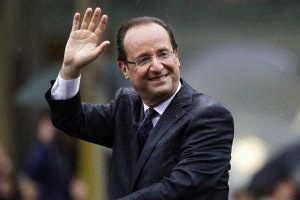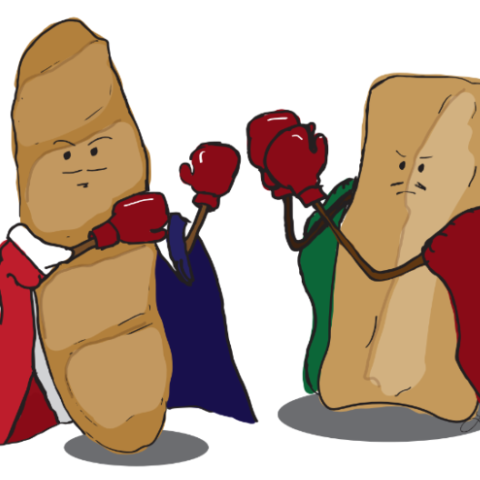After facing off against France’s Goliath, the now former president Nicholas Sarkozy, Francois Hollande was elected as president of France last week by a narrow margin. He steps into his position burdened with lofty expectations: to take control of the National Assembly, to establish himself as a power player on the world stage, and, most importantly, to fix the faltering economy of France or risk undermining the safety of the entire Eurozone.
In the election, Hollande’s major opposition was Nicholas Sarkozy, who was the incumbent candidate for the presidency of France. Sarkozy took the presidency five years ago claiming to be a strong and independent leader, capable of handling France’s economic woes and establishing France as an independent player in the international arena. His failure to help the French economy (low growth and an unemployment rate at a 12 year high), his subservient attitude to the EU and to Germany (following strict policies of austerity, seen as caring more about the euro than the good of the French people), and his showy attitude (marrying an ex-supermodel; rubbing elbows with the rich and famous; rude outbursts in public) have incited the anger and frustration of the French public. The last thing that French voters wanted was another five years of the flashy, snobby, polarizing Sarkozy.
So along came Hollande. He was the Socialist party leader who had never held national government office, having been forced into the presidential candidate position when the shining star of the party, Dominique Strauss-Khan, was accused of rape (the charges were later dropped). He was an unmarried father of four. He spoke quietly. He had a non-ex-supermodel girlfriend. He wore unrimmed glasses. He rode to work on a scooter. He promised a “normal” presidency.
So when the French people were given a choice between the polarizing Sarkozy a new “normal” president, they made the logical choice. Normal. But looking at Hollande – a meek, mild-mannered man whose downward-sloping eyes evoke a docile basset hound – you have to wonder if he is capable of handling the tough situations that the French people have entrusted to him.
And how is he handling them?
Like every other politician in the world, Hollande has made the economy his first priority. “To overcome the crisis that is hitting it, Europe needs plans,” he has said. He certainly has no shortage of plans.
Hollande is proposing a 75% tax rate on France’s top earners and higher corporate taxes. He plans to immediately introduce by decree a 30% tax increase on the salaries of all government employees, including his own, in a largely symbolic gesture. He proposes creating 60,000 new teaching jobs, raising the minimum wage, and lowering the retirement age to 60. He promises to bring the budget deficit down to 3% of GDP by next year, and to balance the budget entirely by 2017. Some economists, however, predict France will face a contraction, making it very difficult for Hollande to keep his word. Tough budget choices will be put off until after the parliamentary elections upon which Hollande is relying; if France’s economy is in worse shape than it appears to be, then Hollande may reduce the level of spending that he promised in the election or make deeper cuts than he suggested in his campaign.
If he can’t keep these promises, it calls into question whether he will keep his other commitments, such as pulling French troops from Afghanistan, freezing gasoline prices, pursuing inclusionary policies for France’s booming immigrant population, and introducing marriage and adoption rights for same-sex couples. With only a short honeymoon period between the French people and himself, Hollande needs to prove that he is a trustworthy and capable leader, and prove it before the June parliamentary elections – which Hollande desperately needs his party to win. Without support from the Socialist party, Hollande will be unable to push his policies through Parliament, leaving France stagnant and failing his responsibilities – thereby perhaps fulfilling his promise of being a “normal” leader.


